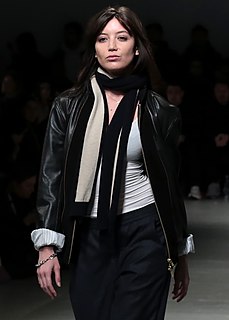A Quote by Joe Walsh
In the very early Seventies and the very late Sixties, nobody out here was originally from L.A.
Related Quotes
I was a tomboy running around in the garden. I used to play on a local cricket team. I grew up with all boy cousins, for the most part, and my brother. My mother was in the kind of late-sixties, early-seventies origins of female emancipation. And she was very much like, "You're not going to be defined by how you look. It's going to be about who you are and what you do."
As young parents of three girls, living in California during the late Sixties and early Seventies, Meredith and I couldn't help but be aware of the rising level of dialogue, debate, commentary, and proclamations about the place of women in society and about how to raise females in light of this raised consciousness.
I realized how for all of us who came of age in the late sixties and early seventies the war was a defining experience. You went o r you didn't, but the fact of it and the decisions it forced us to make marked us for the rest of our lives, just as the depression and World War II had marked my parents.


































